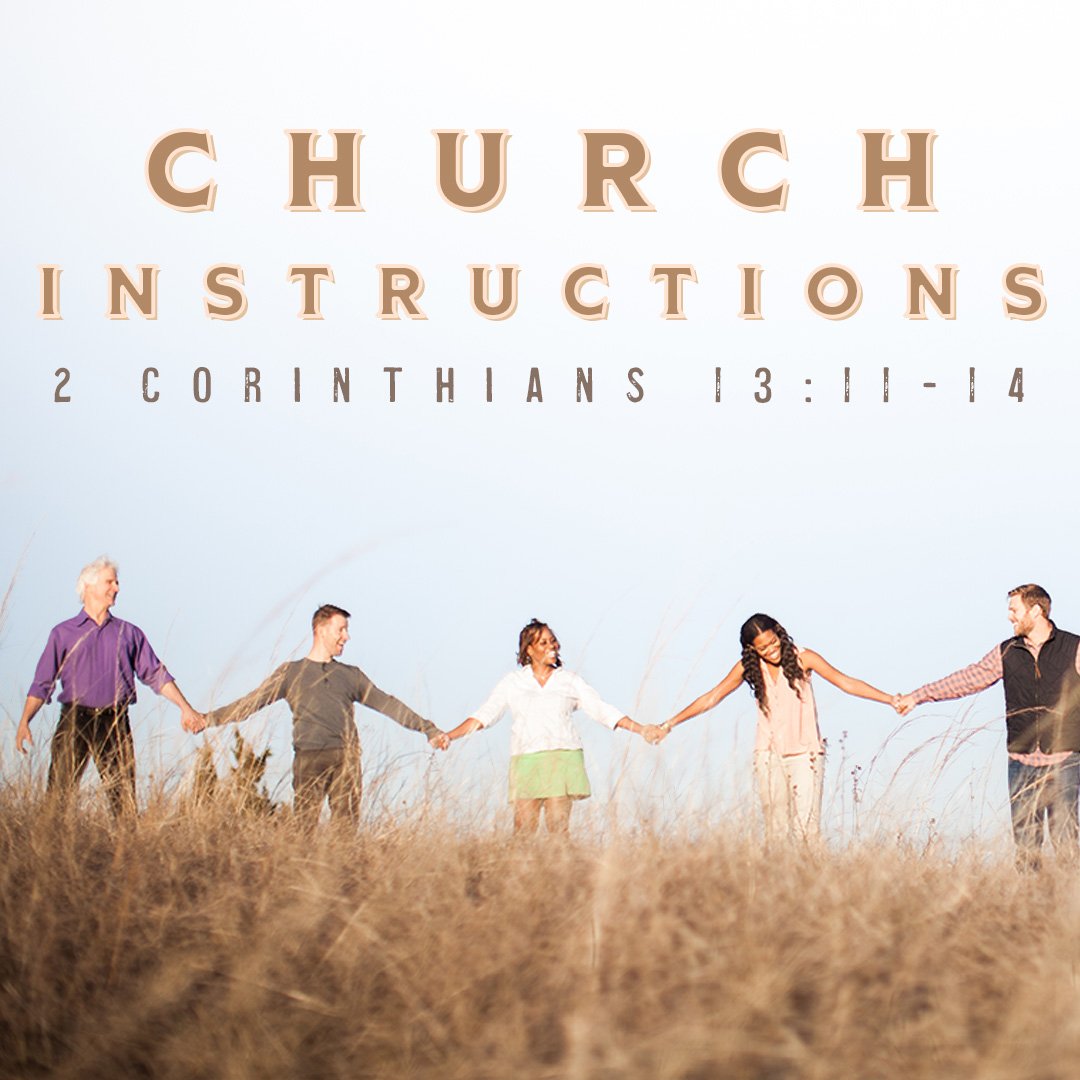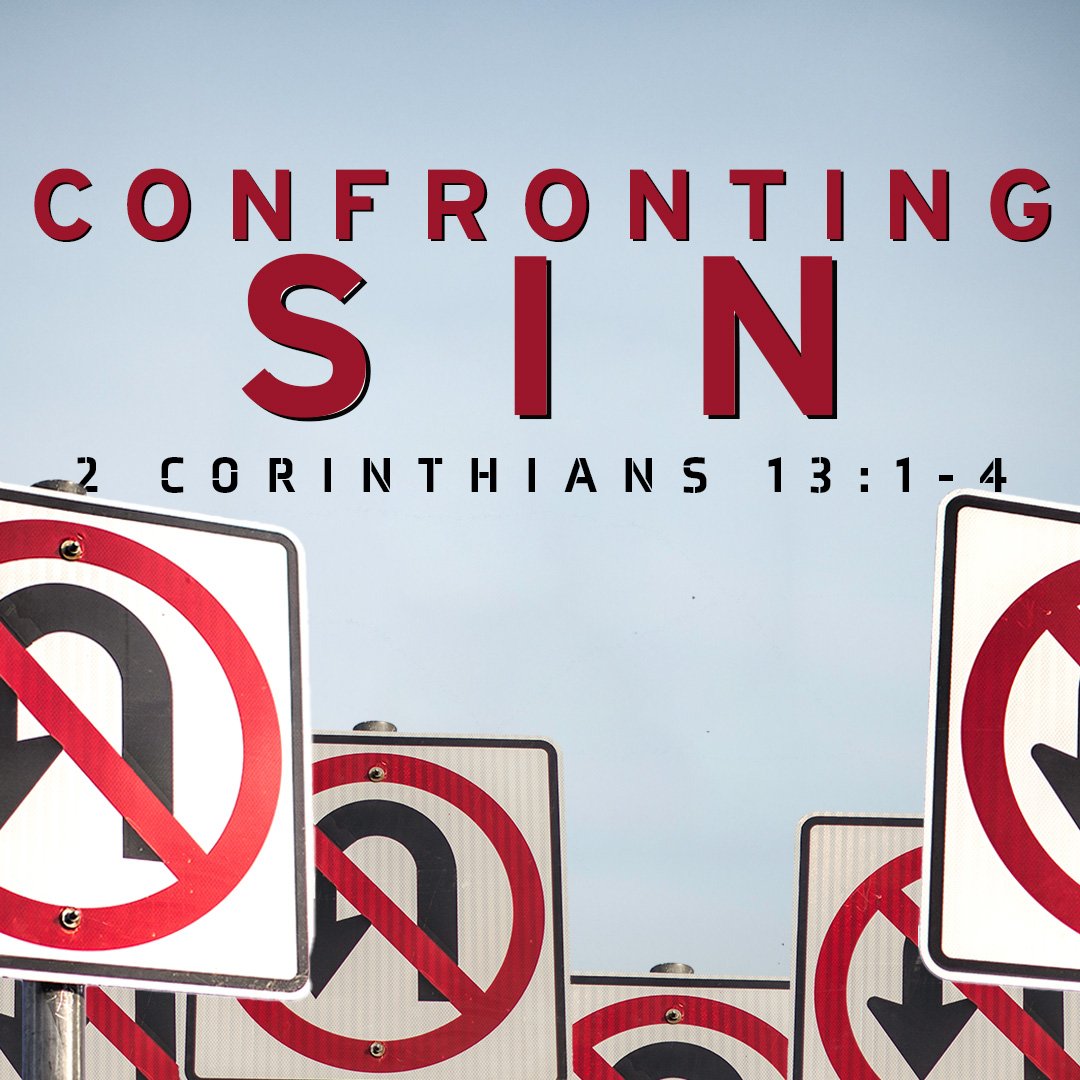All for the Kingdom
Sermon Podcast
Church Instructions, 2 Corinthians 13:11-14
As children leave the house, parents often give short final instructions. These departing words are not new information but reminders of important things. A mom might remind her children of something they need to do while away. A father might remind his children of his expectations of how they should behave while away. And often, parents tell their children one more time that they love them.
These closing words of Paul’s letter are similar words of instructions. These are not new teachings but reminders of important truths.
Confronting Sin, 2 Corinthians 13:1-4
As Paul concludes his letter, he gives some final warnings and instructions. His final warning can be broken into two parts, confrontation of sin and examining your faith to test if it is genuine. In this sermon, I preach on the first part concerning the confrontation of sin.
Confronting sin and church discipline is something that most Christians know should be happening, but they have not seen a healthy or consistent model of how it happens. And a more honest assessment may be that many Christians have no motivation to faithfully participate in church discipline because they enjoy the lack of accountability in their church.
Understanding this passage and how to confront sin requires understanding three principles of healthy, godly discipline:
Discipline is motivated by love.
Discipline is connected to worth.
Discipline is connected to church fellowship.
No Regrets, 2 Corinthians 7:2-16
Regret is a powerful emotion. Generally, it is connected to missing or squandering an opportunity or being unsatisfied with a decision later revealed to be foolish, unwise, or bad. Walking in obedience before the Lord may cause you to experience difficult days and know momentary grief and suffering, but you will never regret it.
In 2 Corinthians 7, Paul references an issue of sin he addressed in 1 Corinthians 5. He had previously written to the church concerning sexual immorality that had been allowed to remain unconfronted in the church. Because of his love for the people in the church, he was grieved by their sin while also saddened that his confrontational words had caused them pain. However, he does not regret writing these words. And he is also confident that the Corinthians do not now regret receiving his words because God has used them to bring the offending individual and the church fellowship to repentance.
Reboot: Remember who you were - Celebrate who you are, Ephesians 2:11-13
I was out of the pulpit on New Year's day, so this week's podcast is from the archives. I preached this sermon on January 4, 2020.
Surveys reveal that almost half of all American adults plan to make New Year's resolutions, the most common being exercising more. However, an analysis from Strava found that many give up on their resolution to exercise more as early as mid-January. Almost 11% of all gym memberships for the entire year are sold in January—greater than any other month.
New year resolutions generally come from recognizing something in our past that we do not like and desiring a better future. The great weakness of new year's resolutions is that they are founded on our strength and power. In Ephesians 2:11-19, Paul calls us to remember who we once were. He is not trying to motivate the church with a guilt trip or encouragement to try harder. Instead, he calls the church to remember who they were before salvation, who has saved them, and celebrate who they are now in Christ.
Blessed by Fellowship, Romans 15:22-32
There are some places that you long to be. Maybe for you, it is at home or being with friends. These places and people refresh your soul. They offer you an opportunity to relax and be restored. Such places and people are both needed and desired.
As Paul closed his letter to the Romans, he expressed how he longed to be with his fellow believers. His longing was not just to have a meal or to be with friends (he had never been with the Roman church), but rather he longed to be with other believers who could (because of their shared relationship with Jesus) have fellowship with him.
The fellowship of believers is created to be a blessing to believers. Among the saints, we find the blessing of community, support, and prayer.
The Church's Testimony, Matthew 18:15-20
Church discipline is a subject that makes many uncomfortable. This may be because the church has not been faithful or consistent, some have used the cover of church discipline to abuse, or so little is understood about it, that there is much misunderstanding. Regardless of how uncomfortable it may cause us to be, we must reckon with the fact that this is the teaching of Jesus. May our heart's desire be to faithfully obey the word of God - even the parts that make us uncomfortable.
The Church's Foundation, Matthew 16:18-19
This passage follows a very significant moment in the life of Peter. Jesus had asked his disciples, “Who do you say that I am?” Peter replied with the powerful confession: “You are the Christ, the Son of the living God.” In verses 18-19 Jesus responds to Peter’s confession. Jesus declares that on this confession of Peter, Jesus will build His church. In this passage, we see that the church is founded on Jesus, sustained by Jesus, and is the testimony of the gospel.
The Name: Brings Hope, Jeremiah 33:14-16
God made a promise to Abraham to bless all the families of the earth through him. God added to this promise when He promised king David (a descendant of Abraham) that his kingdom would last forever with a descendant of his on the throne. These promises, and many more, were fulfilled in Jesus, a descendant of Abraham, a member of David’s family, and the lamb of God who would take away the sin of the world.
In these three verses, there are three promises that give us hope. These were words of hope for Juda for their restoration from captivity. And looking beyond the near horizon to what is beyond these are words of hope for all the world that there is salvation in Jesus.









